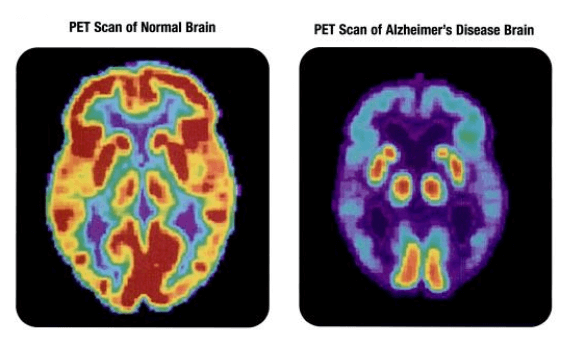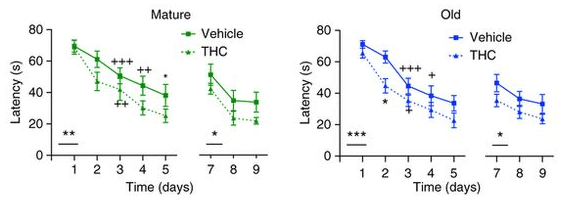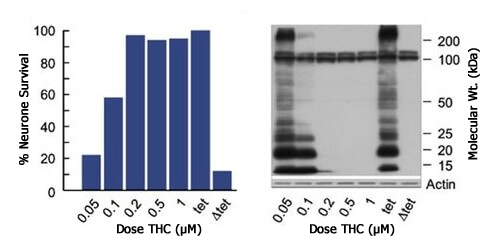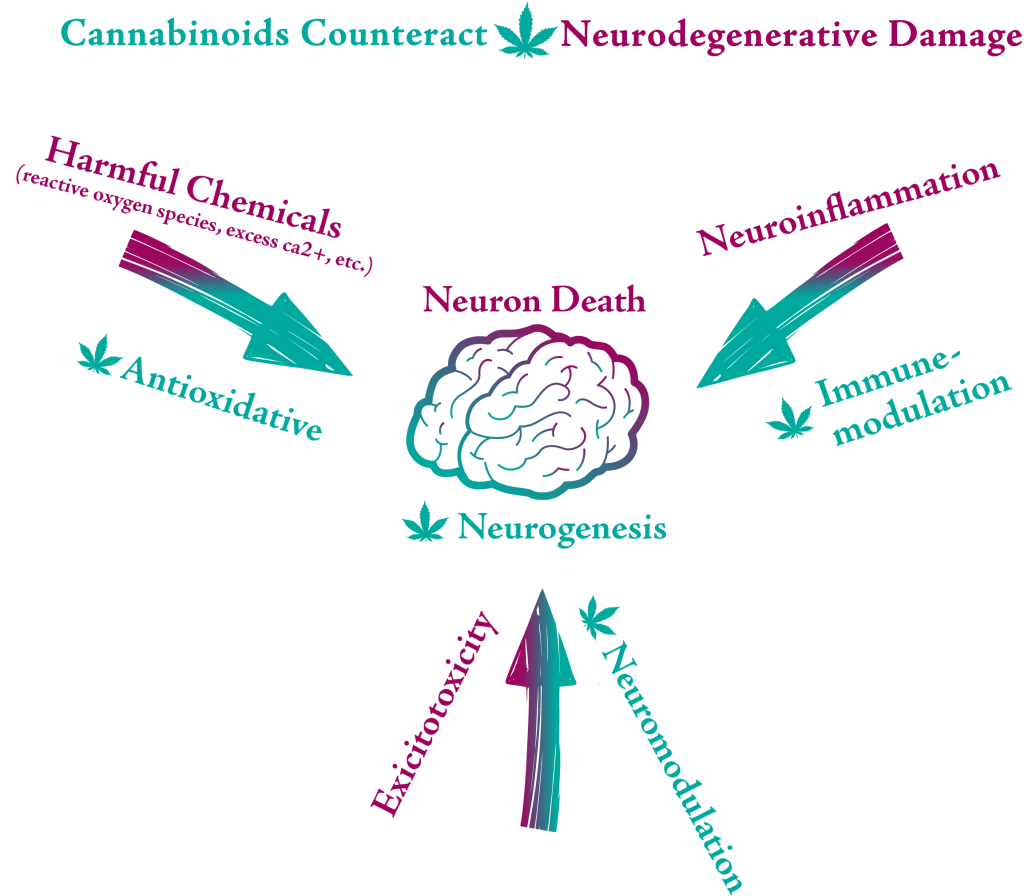
Cannabis has the Potential to Reverse Cognitive Decline and Fight Alzheimer’s Disease

Cannabis has the reputation of impairing memory, attention and motivation, especially in young people. But what if it could actually protect the brain and prevent neurodegenerative disorders like Alzheimer’s and other types of dementia from developing?
Although cannabis has been used for its medicinal properties for many thousands of years (figure 1), scientific research into the plant and its derivatives (pioneered by the Beckley Foundation and others) has only recently started to acknowledge and investigate some of its health benefits. Among many therapeutic applications, results gathered over the last decade have unveiled some extremely promising brain-protective and restorative properties.
The effects of cannabis are caused by chemical compounds produced by the plant known as cannabinoids. These include tetrahydrocannabinol (THC) and cannabidiol (CBD). Cannabinoid-like molecules – called endocannabinoids – occur naturally in the brain, and are involved in a diverse range of processes including appetite, energy regulation, and sleep. Indeed, cannabinoid receptors are some of the most abundant receptors found in the body.

Fig.1 – Humans have been using cannabis therapeutically for thousands of years – it is here illustrated in a 6th-century medical textbook (Wikimedia)
The endocannabinoid system develops gradually throughout childhood and is most active during adolescence, but as we age, its activity declines. Compelling evidence suggests this may be one of the root causes of some of the detrimental aspects of normal and pathological aging. As such, one possibility seems particularly worth exploring – that supplementing the aging endocannabinoid system with exogenous plant cannabinoids may mitigate some of the damage that occurs in the brain as we grow older.
Recent experimental research seems to support this notion. In a study published last year, THC – the molecule in cannabis responsible for its psychoactive effects – was found to reverse age-related cognitive decline in old mice (see figure 2). The study also found that THC increased the number of connections between brain cells in the hippocampus, a brain region which plays a key role in memory.

Fig.2 – THC, administered on consecutive days, significantly increased the speed at which mature and old mice completed a maze task (Bilkei-Gorzo et al. 2017)
This is not an isolated report; several other studies have found that THC-like substances improve memory and cognition in rodents. The positive effects of cannabis and cannabinoids on sleep and appetite, and on reducing stress and anxiety, may constitute other indirect ways in which these substances can ward off cognitive decline.
Perhaps even more profound is the implication that cannabinoids may treat more serious age-related disorders such as Alzheimer’s Disease. Despite the diagnosis of Alzheimer’s in millions of people every year, there is yet no definitive treatment for the condition. The disease involves accumulation of the toxic protein amyloid-beta (Aβ) in the brain. The insoluble Aβ plaques also cause further damage when the bodies own inflammatory response attacks cells in an attempt to clear them, leading to further death of brain tissue.
The idea that a component of cannabis – a natural, easily-grown substance with a known, positive safety profile – could be used to treat a disease which is afflicting more and more people in an aging population is a very attractive one.
Though the science is still at an early stage, pre-clinical research is promising. A study using neuronal cell cultures that had been genetically altered to over-produce Aβ – effectively a test-tube model of Alzheimer’s Disease – found that by adding increasing doses of THC, less of the toxic protein accumulated, and cells were less likely to die (see figure 3 – Aβ aggregates are represented by non-specific bands of 15-100 kDa). These findings are also reflected in animal studies, which found that cannabinoids similar to THC and CBD improved cognition and decreased cellular damage in a mouse model of the disease.

Fig.3 – THC increased survival of Aβ-producing neurones (left), and decreased the accumulation of Aβ (right) in a dose-dependent manner (Currais et al. 2016)
There are various proposed mechanisms for the neuroprotective effect of cannabinoids in degenerative disorders such as Alzheimer’s (figure 4). Symptoms of these diseases are partially a result of the body’s own immune system overreacting to diseased neurones. In chronic brain diseases, excessive immune response to neurones can further damage them, a process known as pathological neuroinflammation. The endocannabinoid system is involved in regulating the inflammatory response by inducing changes in pro-inflammatory proteins, limiting possible damage caused by their over-activation.
Another potential mechanism via which cannabinoids may exert their neuroprotective effects could be through inhibiting excitotoxicity. If neurones activate for too long and too often (excitation), they become damaged (toxicity). Damaged neurones then release chemicals that further activate and damage neurones near them, creating a positive feedback loop of spreading cellular damage. Activation of the cannabinoid system by endocannabinoids decreases the release of these potentially harmful molecules, limiting the spread of damage from an initial injury. By introducing plant cannabinoids in addition to those naturally produced by the body, it may be possible to boost these effects and further minimise brain damage.

Fig.4 – Some of the proposed mechanisms by which cannabinoids may mitigate neurodegenerative damage in conditions like Alzheimer’s Disease (Sasha Frost)
Cannabis derivatives hold great medical potential – not only for the treatment of neurodegenerative diseases such as Alzheimer’s, but for epilepsy, addiction, pain, and a host of other conditions. Unfortunately, this potential is limited by anti-scientific laws and policies. Cannabis is currently on Schedule I of the UN’s global drug conventions; of ‘little or no therapeutic value’, despite the overwhelming amount of evidence to the contrary. This strict legal scheduling means that research into the plant is severely underfunded and limited by bureaucratic restrictions which do little to quell recreational use of cannabis, but which do prevent doctors prescribing it to patients.
We are actively campaigning to reform the current system of drug legislation, and hope that both UK and global policy will soon change to reflect the scientific evidence. The Beckley Foundation and other research groups are dedicated to fully unravelling the therapeutic benefits of cannabis and other psychoactive compounds – something that everyone will benefit from.
Words: Nick Cherbanich & Valerie Bonnelle
Podcast
- All
Links
- All
Support
- All
BIPRP
- All
Science Talk
- All
Amanda's Talks
- All
- Video Talk
- Featured
- 2016 Onwards
- 2011-2015
- 2010 and Earlier
- Science Talk
- Policy Talk
One-pager
- All
Music
- All
Amanda Feilding
- All
Events
- All
Highlights
- All
Psilocybin for Depression
- All
Current
- All
Category
- All
- Science
- Policy
- Culture
Substance/Method
- All
- Opiates
- Novel Psychoactive Substances
- Meditation
- Trepanation
- LSD
- Psilocybin
- Cannabis/cannabinoids
- Ayahuasca/DMT
- Coca/Cocaine
- MDMA
Collaboration
- All
- Beckley/Brazil Research Programme
- Beckley/Maastricht Research Programme
- Exeter University
- ICEERS
- Beckley/Sant Pau Research Programme
- University College London
- New York University
- Cardiff University
- Madrid Computense University
- Ethnobotanicals Research Programme
- Freiburg University
- Medical Office for Psychiatry and Psychotherapy, Solothurn
- Beckley/Sechenov Institute Research programme
- Hannover Medical School
- Beckley/Imperial Research Programme
- King's College London
- Johns Hopkins University
Clinical Application
- All
- Depression
- Addictions
- Anxiety
- Psychosis
- PTSD
- Cancer
- Cluster Headaches
Policy Focus
- All
- Policy Reports
- Advisory Work
- Seminar Series
- Advocacy/Campaigns
Type of publication
- All
- Original research
- Report
- Review
- Opinion/Correspondence
- Book
- Book chapter
- Conference abstract
- Petition/campaign
Search type



